
Accident ! Lors de l'ultime confrontation de l'Olympiade mathématique mondiale, la 65e OMI, La Chine a perdu la première place de l'équipe de 2 points...
N'a pas réussi à défendre le titre et les « cinq championnats consécutifs » ont pris fin.
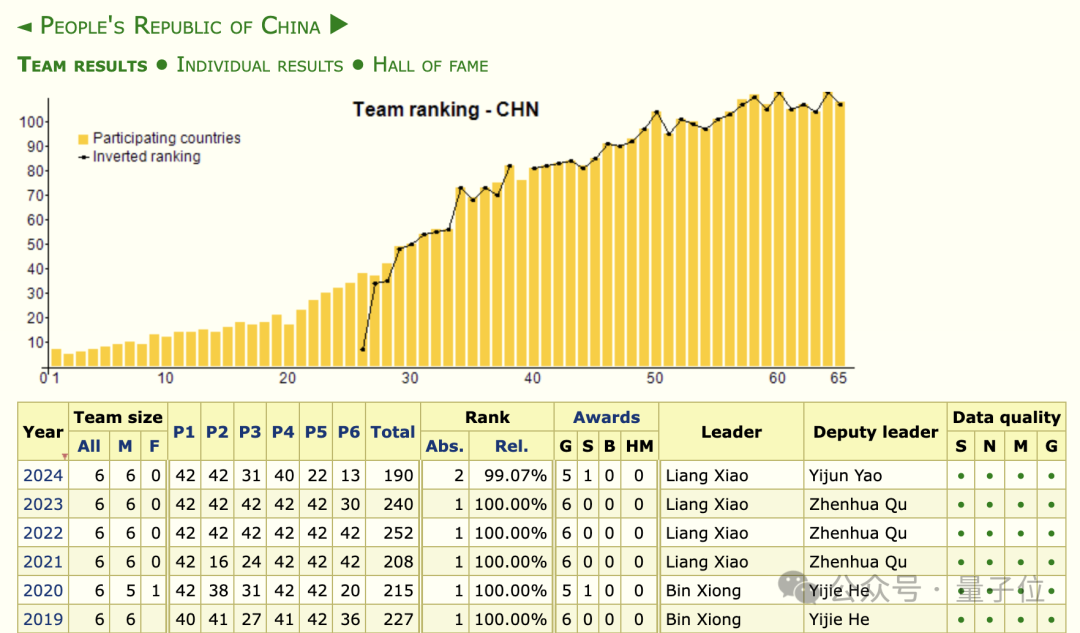
Cette fois, 6 joueurs chinois ont remporté un total de 5 médailles d'or et 1 médaille d'argent, avec un score total de 190 points. L'équipe s'est classée deuxième, derrière l'équipe américaine.
L'équipe chinoise a remporté la première place à l'OMI 24 fois au total Au cours des 5 dernières années consécutives, l'équipe chinoise a été la championne par équipe, qui est aussi dominante que le tennis de table ;
Mais maintenant, le trône a changé de mains et la « China Second Team » a pris le relais.
Sauf regrets, parmi les six joueurs présents en Chine cette année, après Luo Wei, Fu Yunhao et Wei Dongyi, il y a le 4ème joueur de l'histoire de l'équipe chinoise à réaliser le double score parfait à l'OMI (obtention de scores parfaits pour deux années consécutives) :
Shi Haojia du lycée Hailiang, ville de Zhuji, province du Zhejiang.
Dans cette IMO, il a remporté la médaille d'or avec la première place en score personnel et a été le seul joueur avec des scores parfaits dans la compétition.
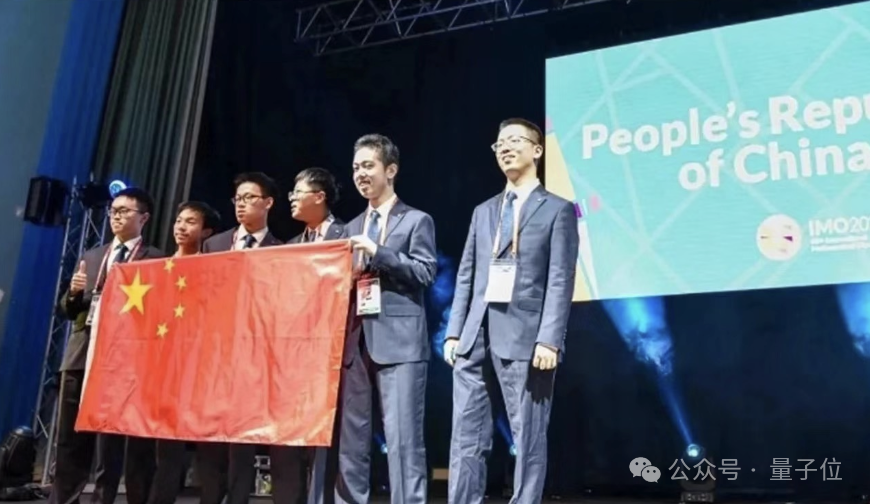
De plus, l'équipe indienne s'est classée quatrième pour la première fois (neuvième l'année dernière), et l'équipe suédoise a remporté une médaille d'argent, trois de bronze et deux récompenses honorifiques pendant longtemps. Les six joueurs ont remporté le prix. , qui a attiré beaucoup d'attention.

D'accord, lisons la suite pour plus de détails sur cette IMO~
Cette IMO s'est tenue à Bath, au Royaume-Uni, avec 609 joueurs de 108 pays. Les concurrents se sont affrontés avec acharnement. pendant 2 jours, environ 4,5 heures chaque jour.
Un total de 54 médailles d'or (ligne d'or 29 points), 121 médailles d'argent (ligne d'argent 22 points), 145 médailles de bronze (ligne de bronze 16 points) et 170 mentions honorables.
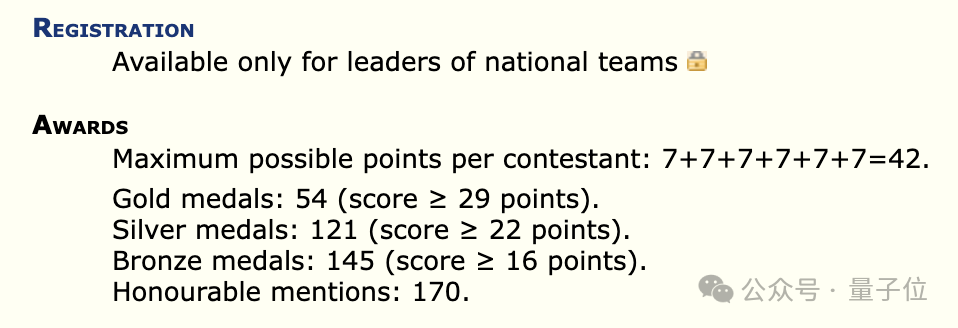
Au final, l'équipe américaine, l'équipe chinoise et l'équipe coréenne ont remporté le championnat par équipe, respectivement deuxième et troisième.
L'équipe championne des États-Unis a marqué un total de 192 points, remportant 5 médailles d'or et 1 d'argent.
Parmi elles, Jessica Wan est la seule joueuse de l'équipe américaine. Elle vient de la Florida Virtual School. De 2021 à 2024, Jessica Wan a remporté quatre médailles d'or EGMO consécutives.
Les résultats des 6 participants sont les suivants :
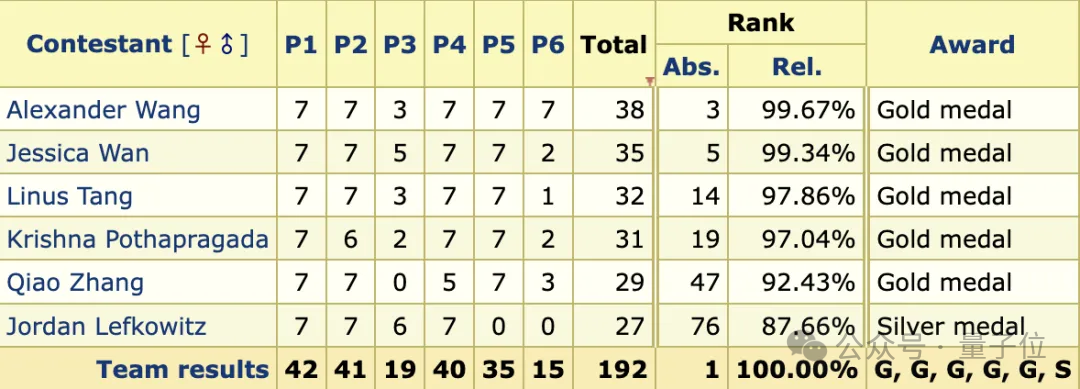
L'équipe chinoise finaliste a marqué un total de 190 points et a remporté 5 médailles d'or et 1 d'argent.
Les six concurrents sont :
Shi Haojia : médaille d'or, 2e année, Hailiang Senior High School, ville de Zhuji, province du Zhejiang (le seul score parfait de la compétition)
Xu Qiming : médaille d'or , 1re année, Lycée de langues étrangères pour le développement économique de Wuhan
Wang Chunji : Médaille d'or, 2e année, Collège de Shanghai
Deng Zhewen : Médaille d'or, 1re année, Collège expérimental de Wuchang de la province du Hubei
Wang Xianbang : Médaille d'or, deuxième année, lycée affilié à l'Université Renmin de Chine
Ye Yuxing : médaille d'argent, première année, lycée affilié à l'Université Renmin de Chine
Les résultats du Les 6 participants sont les suivants :
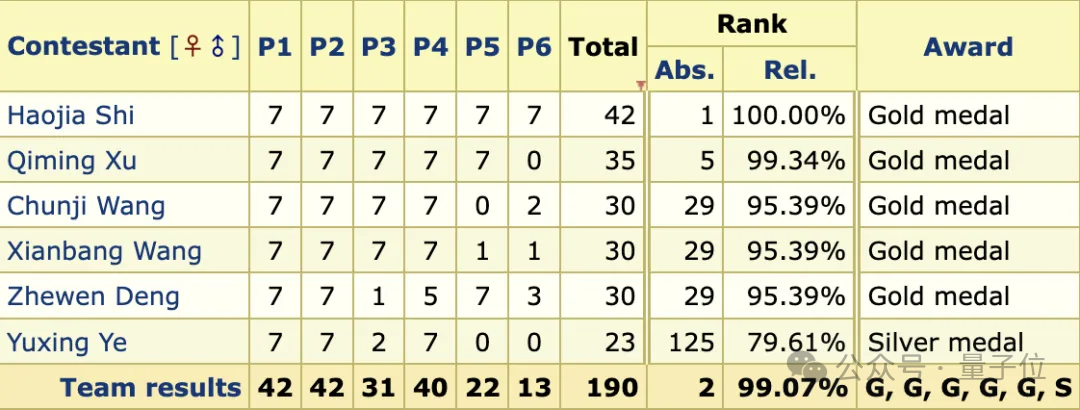
La troisième équipe coréenne finaliste a marqué 168 points et a remporté 2 médailles d'or et 4 médailles d'or et d'argent.
Les résultats des 6 participants sont les suivants :
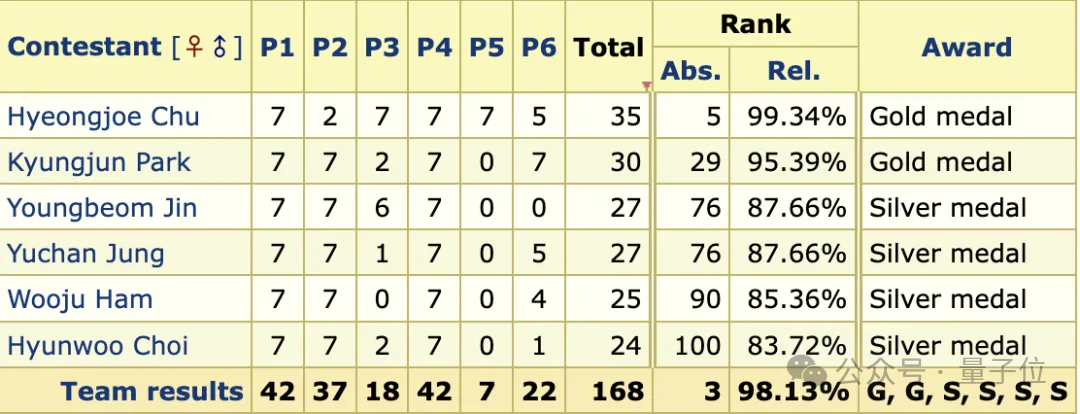
Cette année, l'équipe chinoise a malheureusement perdu la première lieu, et il y avait des raisons extérieures objectives à cette question.
À en juger par les résultats officiels, la cinquième question a cette fois été difficile pour un grand nombre de candidats.
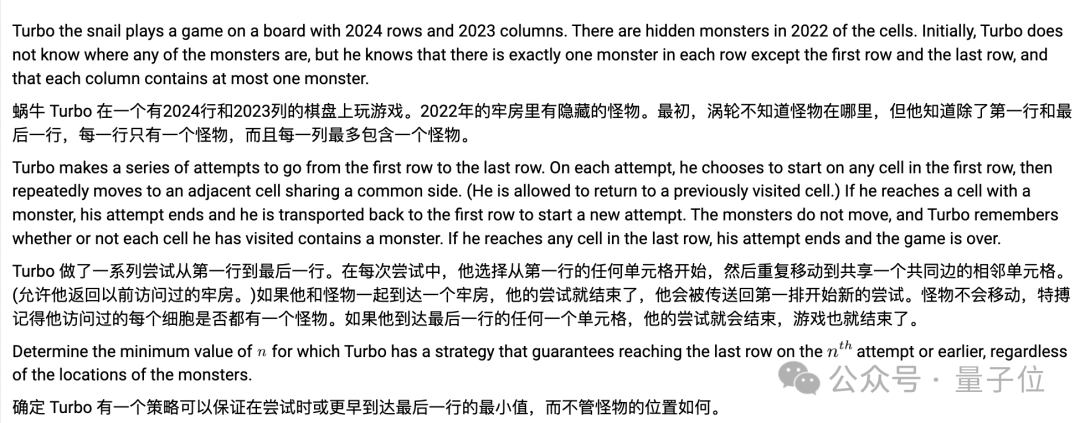
Dans la cinquième question, 5 personnes de l'équipe américaine ont marqué 7 points et 1 personne a marqué 0 point.
Dans l'équipe chinoise, 3 joueurs ont marqué 7 points, 1 joueur a marqué 1 point et 2 joueurs ont marqué 0 point.

De nombreux internautes ont découvert que non seulement certains membres de l'équipe chinoise étaient tombés sur cette question, mais que de nombreux joueurs avaient également de mauvais résultats à la question 5.
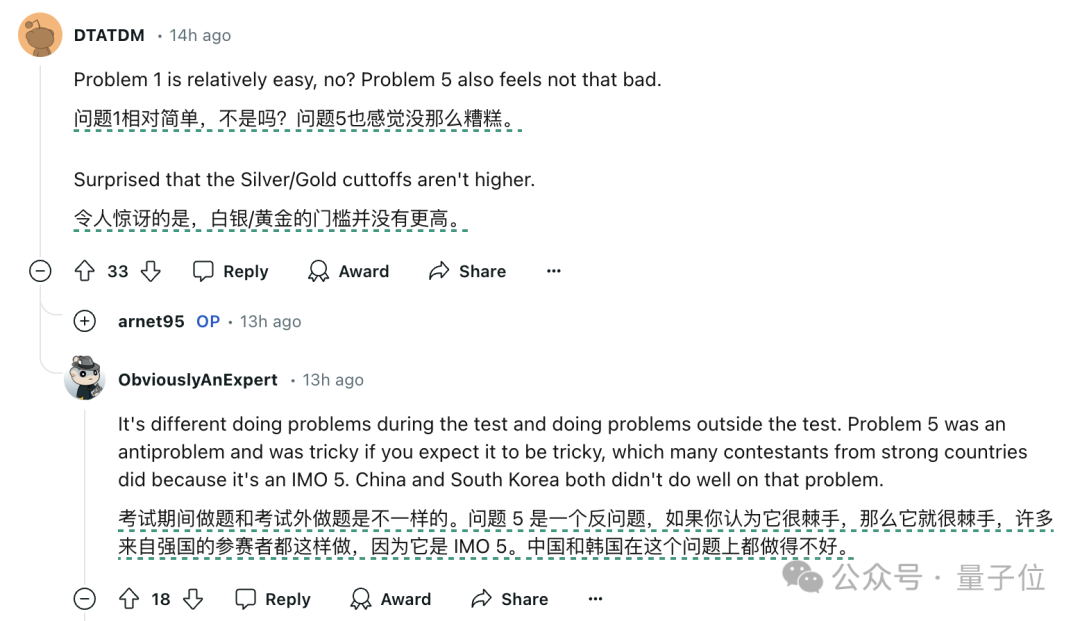
Luo Boshen, the former head coach of the US team, mentioned that IMO is also paying more and more attention to the players' ability to creatively solve problems, such as the 5th question that has been discussed a lot this year. This is a combination that does not follow common sense. The problem requires everyone to use their creativity to solve the problem.
Many players may be at a loss because they are too accustomed to regular training. On the contrary, players who can make good use of mathematical thinking may find this problem particularly easy to solve.
In addition to the "surprise" in the question, the opponent this time is also very strong.
Like the American team that ended China's five consecutive championships this time, Alexander Wang won the IMO gold medal last year with a score of 41 points (out of 42), and he is only 16 years old this year.

Jessica Wan has won the EGMO gold medal in the European Women’s Mathematics Marathon for four consecutive years.
Qiao (Tiger) Zhang, Ramanujan Spiritual Scholarship recipient, RMM gold medal winner in 2024.
Linus Tang, RMM Gold Medal winner in 2024.

Due to the excessive number of Chinese in the daily American team Gao, is also jokingly called the "China's Second Team" by many people.
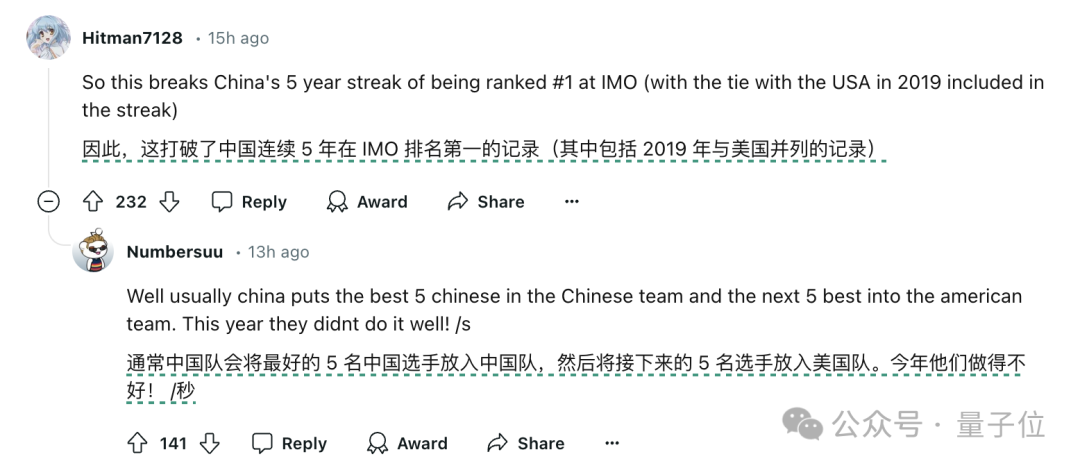
The reason why the US team has achieved such an achievement is due to the man behind it.
That is former head coach Luo Boshen, who led the team to four team championships in ten years of coaching and revitalized the entire U.S. Mathematical Olympiad national team.
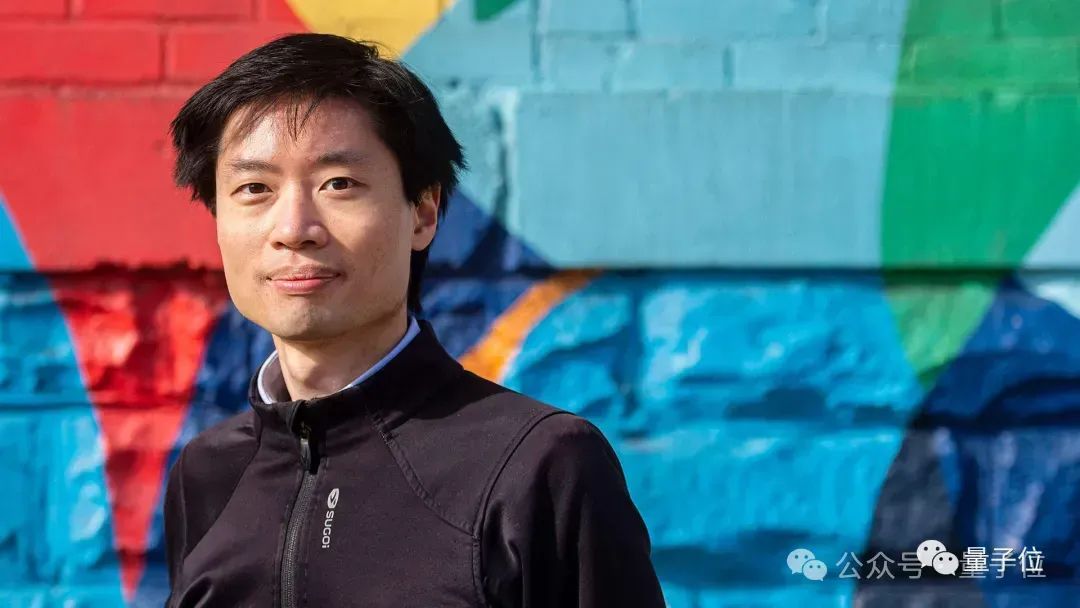
This year, although Luo Boshen is no longer the head coach, he still ran the MOP (Mathematics Olympiad Summer Training Program) at the invitation of the American Mathematical Society. The six participating team members this time were selected by him personally.
Teams from other countries are actually on the rise.
For example, India, which finished fourth for the first time, is impressive. This time they won four gold medals, while they only ranked ninth last time.
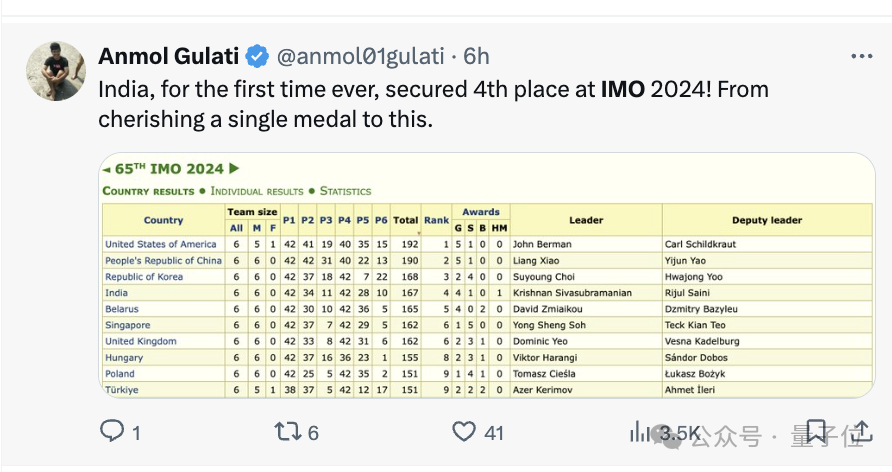
There are also teams like Singapore ranked 6th and Mongolia ranked 16th.
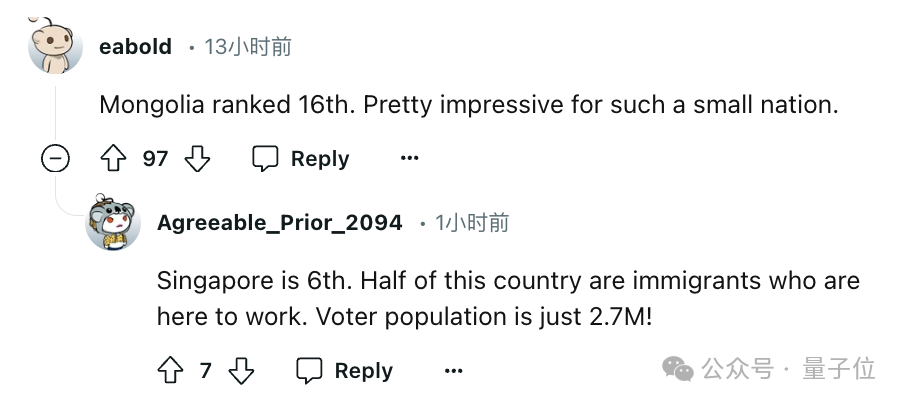
However, although the Chinese team lost its sixth consecutive championship, there are also surprises and points worthy of attention.
For example, Shi Haojia from Hailiang Senior High School, who received the only perfect score this time, also received full marks in the Olympiad last year.
After Luo Wei, Fu Yunhao, and Wei Dongyi, he is another Chinese IMO Olympian with double perfect scores, and this year he is only 16 years old.
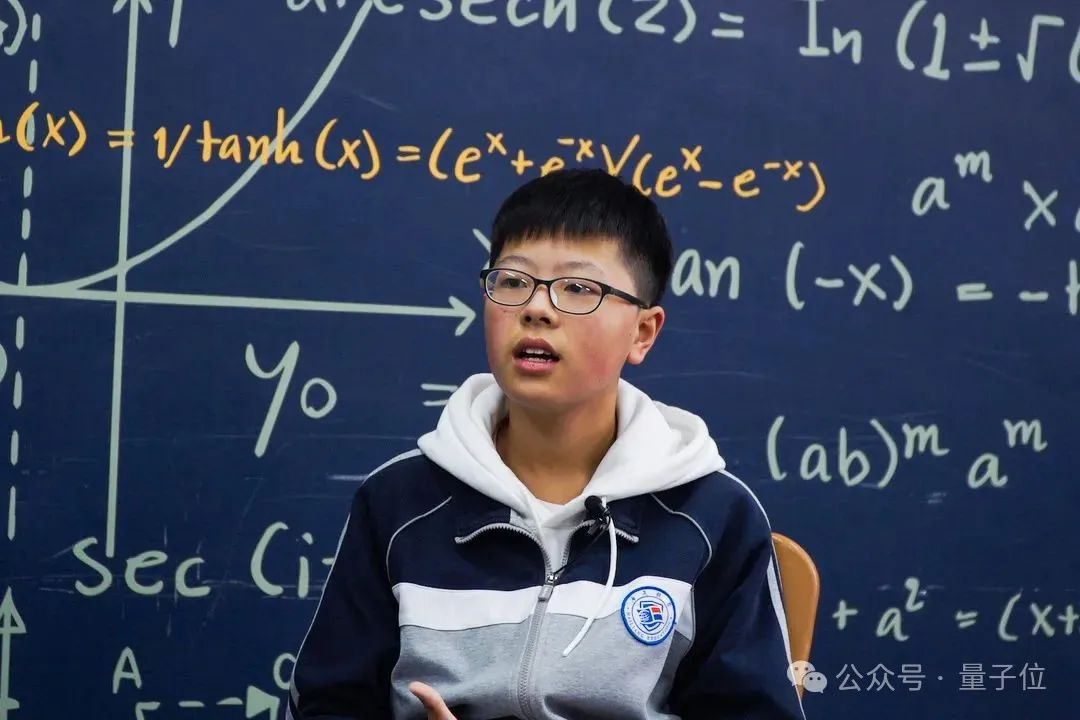
According to previous reports, Shi Haojia completed the junior high school mathematics course at the age of 9. At the age of 10, he emerged in the Yingchun Cup National Primary School Mathematics Competition and won the gold medal.
Zhang Xiaoming, his competition coach and the principal of Hailiang Senior High School where he studied, commented:
If he has any characteristics, it is that his driving force for learning comes from his love for mathematics, rather than other external factors. in something.
Sometimes if he encounters a difficult problem, he has to solve it even without sleeping.
2 months ago, mathematician Qiu Chengtong’s judgment on the current level of Chinese mathematics caused great controversy at the time.
When he was a guest at Huazhong University of Science and Technology and delivered a speech on "The Current Situation and Future of Chinese Mathematics", he said that any powerful modern country must be among the best in mathematics achievements. Countries such as the United Kingdom, France, the United States, Russia, and Japan all have very high levels.
But Chinese mathematics has not yet reached this achievement.
In the speech PPT, Qiu Chengtong was even more blunt:
China’s current mathematics has not yet reached the level of the United States in the 1940s.
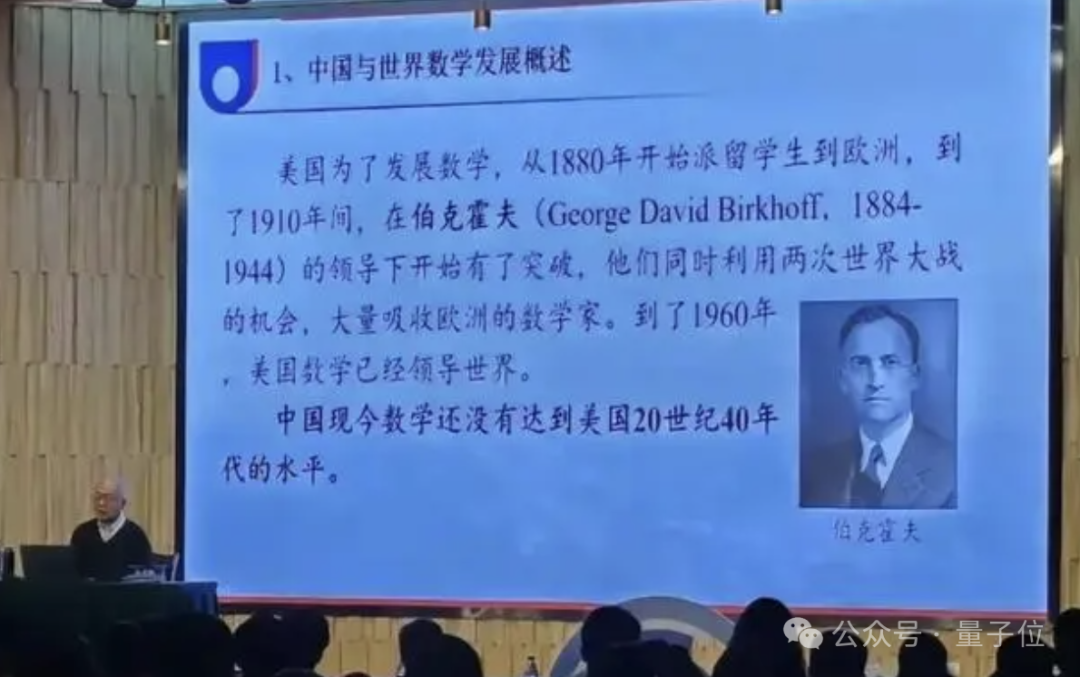
But Qiu Chengtong also mentioned the reasons for this judgment in his speech.
On the one hand, the United States began sending foreign students to Europe to study mathematics in 1880, and later attracted a large number of mathematicians. In this way, it quickly became the world center of mathematics in less than 150 years.
On the other hand, there are various obstacles and obstacles in China as shown in the picture. Therefore, modern Chinese mathematics is in a critical state of survival.
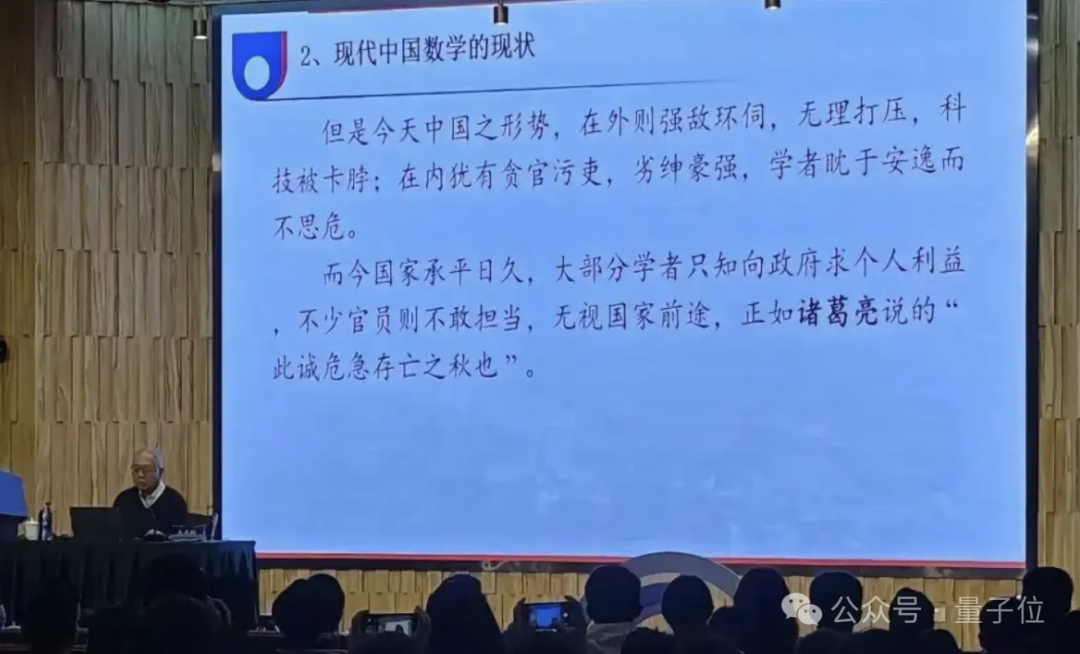
In fact, this is not the first time Qiu Chengtong has said similar things publicly.
In many external speeches over the years, he has mentioned that China’s modern mathematics is still far from the world’s top.
For example, we are also facing the brain drain and shortage.
For another example, "China currently places more emphasis on applied mathematics, and the development of theoretical mathematics needs to be strengthened. The latter requires a painful and isolated thinking process."

But after Mr. Qiu's conclusion this year, it is rare to be criticized by many Non-mathematical researchers criticized it, believing that it would destroy one's own prestige by boosting other people's ambitions.
There were some opponents, and the example cited at the time was China's long-term dominance in IMO...
Now in the face of the latest results, in addition to re-examining Qiu Laoguoshi's coldness, we also need to be more realistic.
Also, the high score of 190 and the second place in the world are still very good results. Congratulations to all the players and have a bright future.
Attached is this year’s IMO questions at the end. Interested friends can try it~
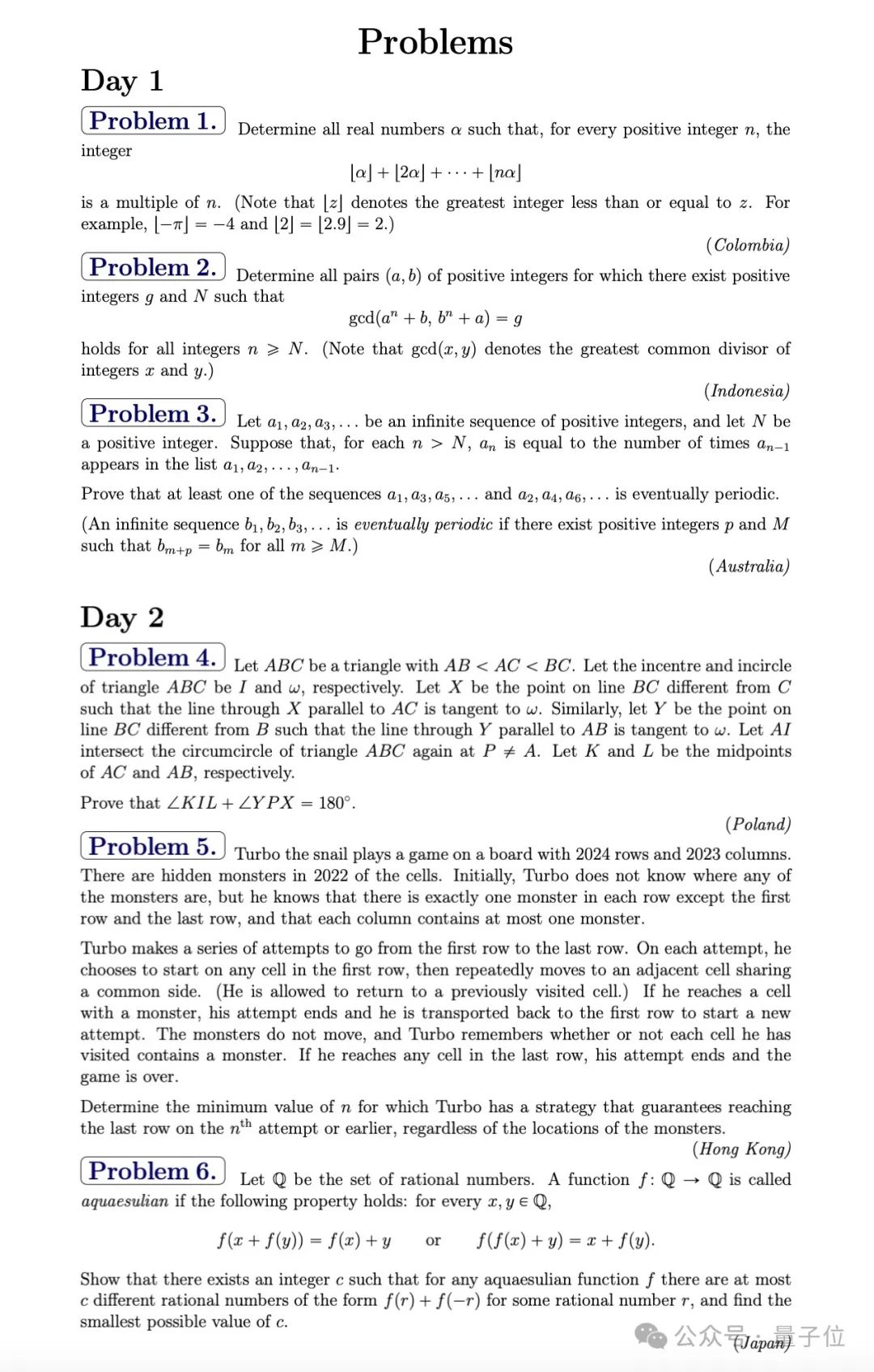
Reference link:
[1]https://www.imo-official.org/ year_info.aspx?year=2024
[2]https://mp.weixin.qq.com/s/0ois6AvN69aZB36lzxA9ww
[3]https://maa.org/news/ usa-first-at-imo/
Ce qui précède est le contenu détaillé de. pour plus d'informations, suivez d'autres articles connexes sur le site Web de PHP en chinois!